Clinical Trials Access Collaborative
Committed to making medical research more accessible.
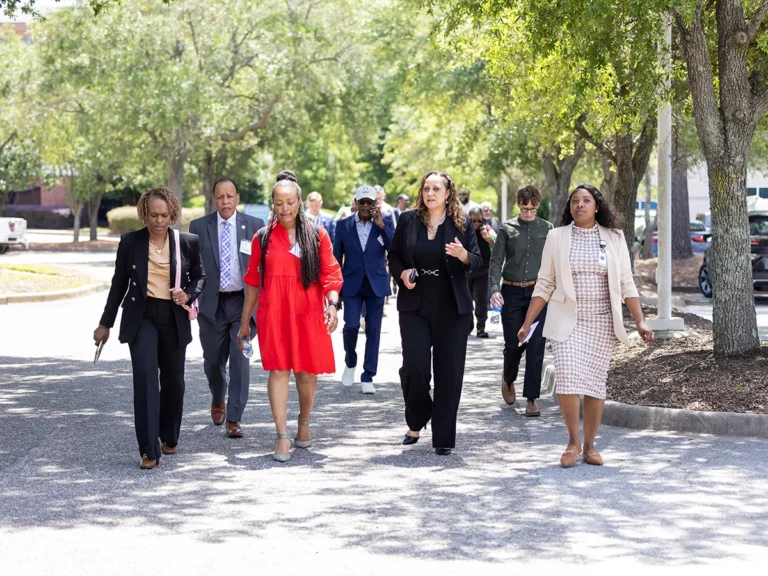
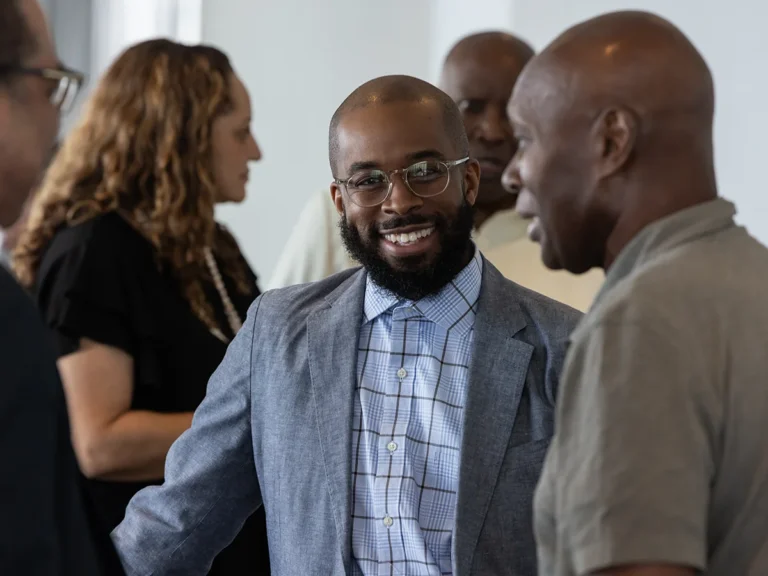
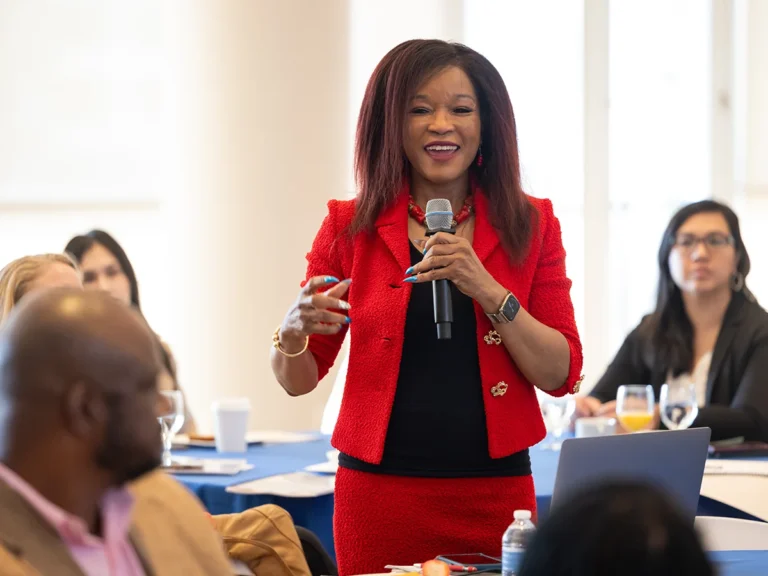
CTAC is based on lessons of its processing grant and learning phase, Equitable Breakthroughs in Medicine Development. CTAC strives to ensure those who wish to participate in clinical trials have the opportunities to do so. CTAC connects clinical trial sponsors, healthcare institutions, community organizations, and the research ecosystem to accelerate clinical trial participation in communities with access gaps.
We believe making clinical trials and medical innovation more accessible is essential to improve science and to make better therapeutics that truly change health outcomes.
Improving access and ultimately advancing health across communities and zip codes that have been historically left behind can improve health over generations to come and unlock greater economic mobility through workforce development initiatives.
The Network Partners
CTAC is led by national clinical research experts. Its Network Partners, which continue to provide valuable advisory support to sites, include Equity Research and Innovation Center (ERIC) at Yale University, Morehouse School of Medicine, the Research Centers in Minority Institutions Coordinating Center (RCMI-CC) at Morehouse School of Medicine, and Vanderbilt University Medical Center.
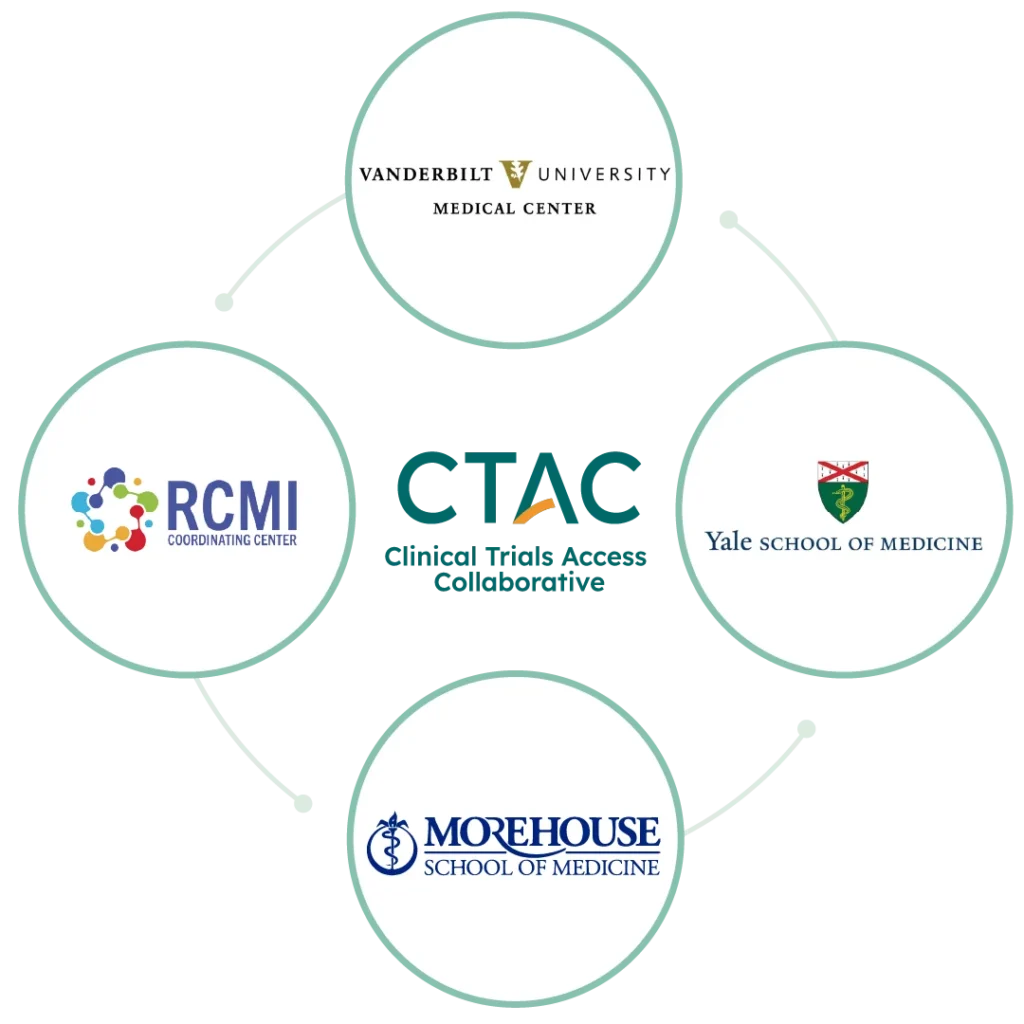
Key elements for making local sites sustainable in the clinical trial ecosystem include:
Building on existing strengths and capabilities using a co-developed maturity model
Developing lasting partnerships.
Providing continuous mentoring support from CTAC Network Partners to help sites meet their goals and aspirations
Pharmaceutical Research and Manufacturers of America (PhRMA) awarded a $10 million grant to Yale University to support the creation and development of this initiative. PhRMA convened thousands of stakeholders in the process to design this learning phase to work with 10 sites in underserved communities to help enhance diverse participation in clinical trials and uncover learnings to promote sustainability and success.
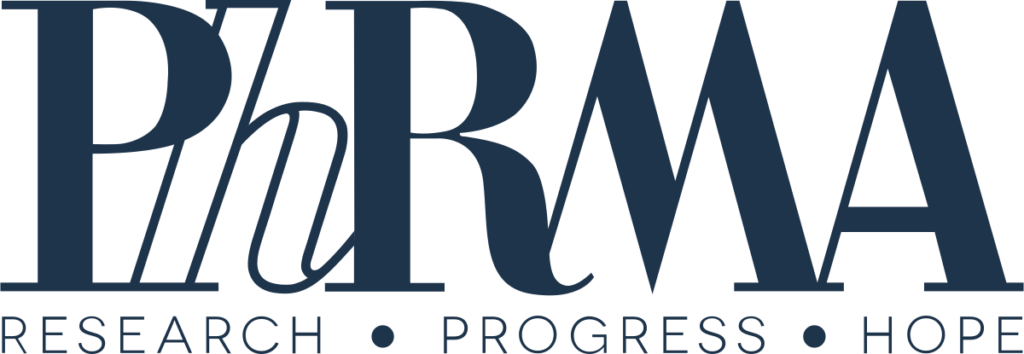
* CTAC presently is in the 501(c)(3) application process